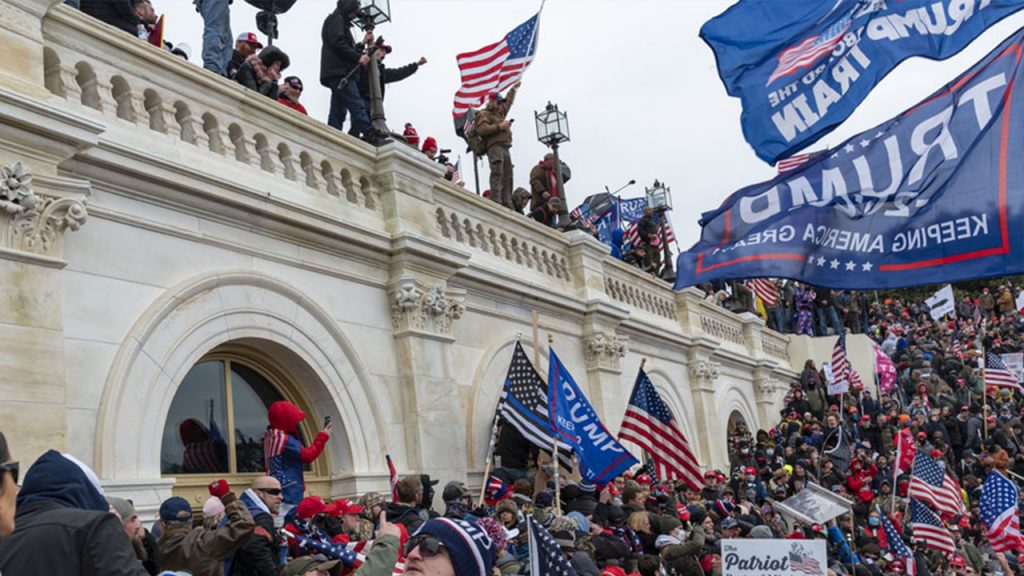‘Legitimate political discourse’: What are acceptable forms of debate in a democracy?
We interpret whether something is legitimate civil disobedience depending on who is doing the act of disobedience. “Who are the ones raising their voices?” Timothy Shaffer says.

Truck drivers have been protesting in Canada causing major disruptions there and in Detroit due to the blockade of the Ambassador Bridge. During a time of high polarization, there are many questions about when civil disobedience is interpreted as legitimate by the broader public. This question is particularly relevant as the Republican Party officially described the Jan. 6, 2021, insurrection to be “legitimate political discourse.”
“Who are the ones raising their voices?” — Timothy Shaffer, director of Kansas State University’s Institute for Civic Discourse and Democracy
Listen: Timothy Shaffer explores the tricky nature of what is valid political speech.
Guest
Timothy Shaffer is an associate professor and the director of Kansas State University’s Institute for Civic Discourse and Democracy. He recently co-wrote a piece titled “What Is ‘Legitimate Political Discourse,’ And Does It Include The Jan. 6 Attack On The Capitol?” that looked at how to draw the line between “legitimate political discourse” and illegitimate political violence.
Shaffer says we interpret whether something is legitimate civil disobedience depending on who is doing the act of disobedience. “Who are the ones raising their voices?” he says.
“How do we approach this and what are our politics? That is a major factor in what determines if we see this as being something that we align with and support because this is kind of the grassroots kind of democracy in practice or is this just utter disruption.”
He says these events have rippling effects and real-life implications for people.
“What is this doing, to what end is always my question,” Shaffer says. “By all indications, our politics right now, because we’re so deeply rooted in what we refer to as affective polarization that we see that other side as not just people with a different set of policy views … but we really see them as enemies and we need to beat them. We need we need to win right at all costs.”
Trusted, accurate, up-to-date.
WDET strives to make our journalism accessible to everyone. As a public media institution, we maintain our journalistic integrity through independent support from readers like you. If you value WDET as your source of news, music and conversation, please make a gift today.
